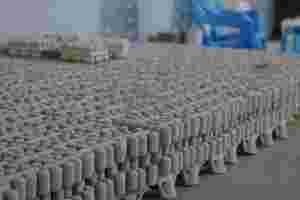Deprecated: get_settings is deprecated since version 2.1.0! Use get_option() instead. in /www/sites/alloy.wiki/index/wp-includes/functions.php on line 4862
What are the performance characteristics of precision castings?
- The maximum limit length of precision castings is 700mm, and the easy to make length is below 200mm. The maximum weight is about 100 kilograms, usually below 10 kilograms.
- The dimensional tolerances of precision castings are 20mm ± 0.13mm, 100mm ± 0.30mm, 200mm ± 0.43mm, while the dimensional accuracy of small parts is not easily within ± 0.10mm. The angle tolerance is ± 0.5~± 2.0 degrees, and the minimum thickness of precision castings is 0.5~1.5mm. The surface roughness of precision castings is approximately Rmax 4S~12S.
- There are almost no restrictions on the materials of precision castings, such as aluminum alloy, magnesium alloy, titanium alloy, copper alloy, various steel, cobalt based and nickel based heat-resistant alloys, and hard materials.
- Precision casting produces workpieces with complex shapes, good dimensional accuracy, and cutting processing.
- Precision castings save material waste and can be produced in large quantities.

Dewaxing precision castings-Investment casting are widely used in jet engines, gas turbines, steam turbines, aircraft parts, internal combustion engines, vehicles, food machinery, printing machinery, paper making machinery, compressors, valves, pumps, measuring instruments, sewing machines, weapons, office machines, and other machine parts.
Link to this article:What are the performance characteristics of precision castings
Reprint Statement: If there are no special instructions, all articles on this site are original. Please indicate the source for reprinting:Alloy Wiki,thanks!^^

